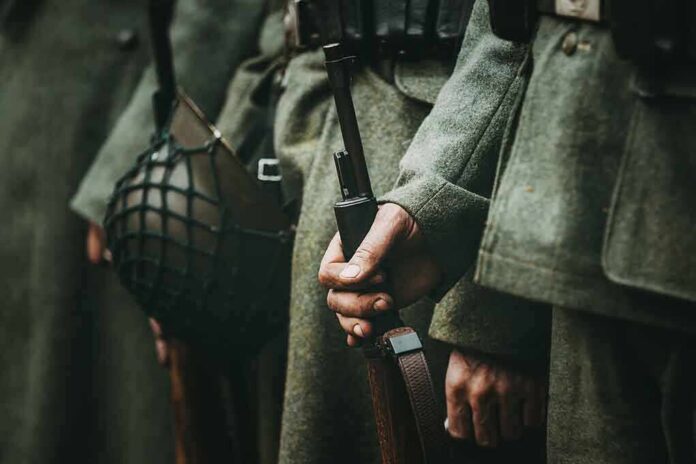
(NewsWorthy.news) – Lithuanian leaders praised a “historic event” as roughly two dozen German soldiers were deployed in the country, marking the first time Germany will be deploying troops in a foreign nation long-term since WW2. A further 150 troops are set to join those already deployed later in 2024. The full strength of the deployment is expected to reach 5,000 by the end of 2024. Germany’s Defense Minister Boris Pistorius stated it was an important day for Germany’s military. In Lithuania’s capital of Vilnius, Defense Minister Laurynas Kasciunas called the move a “great example” for all NATO countries to follow in eastern Europe on the border with Russia and Belarus.
Lithuania reintroduced conscription in 2016 due to security concerns, and Latvia reintroduced the measure in 2024. In March 2024 Latvian and Estonian presidents urged NATO allies to bring back conscription to prepare for an armed Russian invasion of Eastern Europe as NATO continues to expand its borders.
The UK ruled out bringing back conscription in January as concerns mounted over countries bringing back compulsory military service. French President Emmanuel Macron’s suggestion that France could be putting boots on the ground in Ukraine prompted criticism from NATO allies, with the U.K., U.S. and Germany all distancing themselves from the idea and stressing that they had no plans to deploy troops in the country. In December 2023, Germany reaffirmed its support for Ukraine in its war against Russia. It is the second largest supplier of military aid to Ukraine, and the war has marked the first time in recent history that Germany has given arms and military support to a party at war.
In 2022 the invasion of Ukraine prompted a considerable shift in Germany’s longstanding Ostpolitik foreign policy regarding Russia. In response to the war in Ukraine, Chancellor Olaf Scholz announced a huge increase in spending on defense, breaking away from Cold War traditions of underfunding Germany’s armed forces. The Ostpolitik policy of Willy Brant, Chancellor of West Germany, implemented in the early 1970s had been followed ever since and focused on maintaining close and cooperative relations with Russia. Scholz claimed that the train of thought in post-war Germany was based on an “illusion” that war had been banished from Europe. The country will not be alone among western powers in stationing large numbers of troops in the Baltic; the U.K. currently has roughly 900 soldiers stationed across Lithuania, Latvia, Poland and Estonia.
Copyright 2024, NewsWorthy.news
























